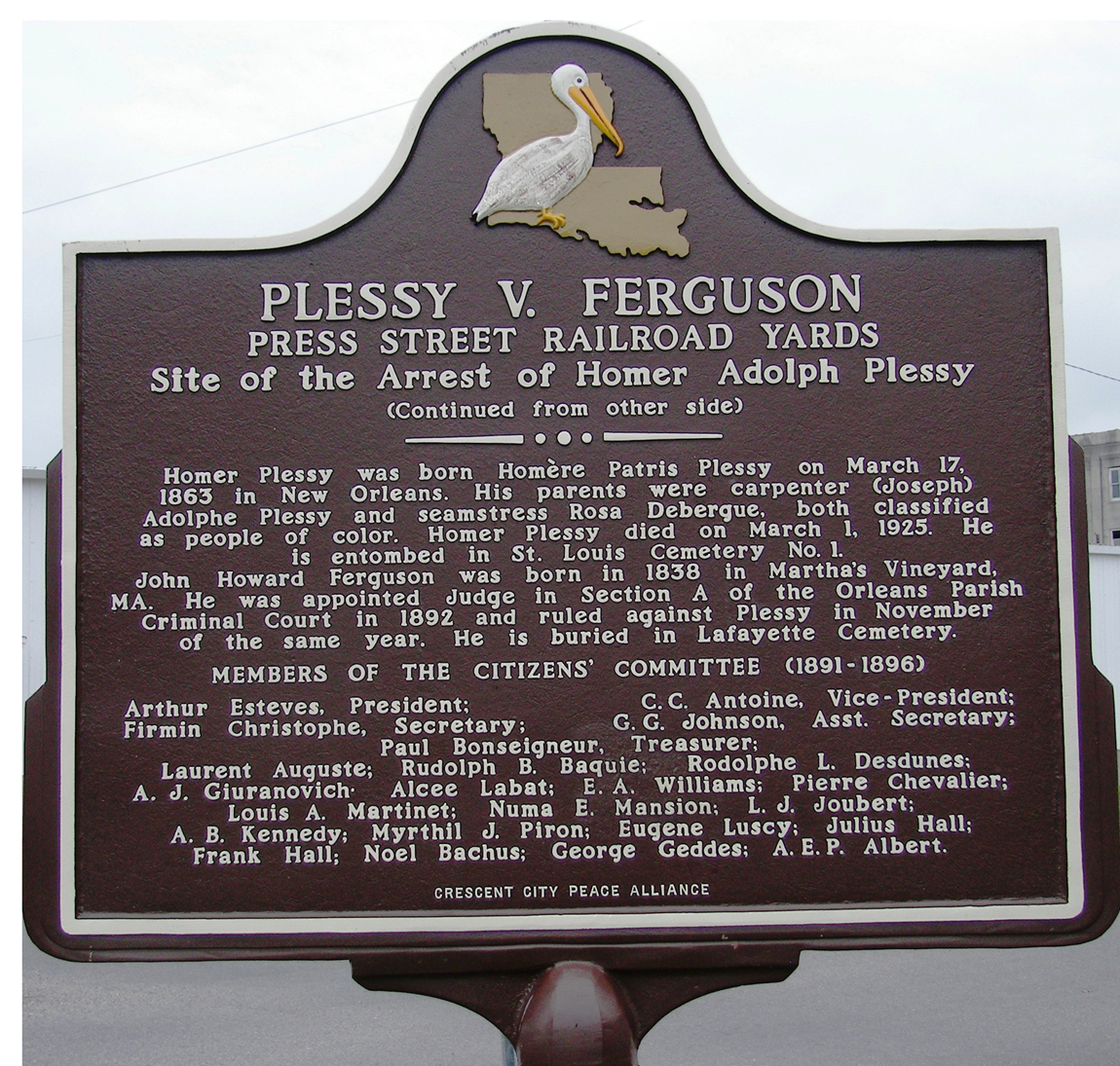
Homer Plessy, catalyst for “separate but equal” Supreme Court ruling, gets posthumous pardon
The landmark Plessy v. Ferguson ruling saw segregation remain legal for decades. Nearly 130 years later, Louisiana governor John Bel Edwards issues a pardon…
Throughout U.S. history, various landmark Supreme Court cases have shaped everyday American life and changed the way the Constitution is interpreted.
One such landmark case is the 1896 ruling for Plessy v. Ferguson, which ruled that racial segregation or “separate but equal” laws did not violate the 13th and 14th Amendments.
The ruling stood for more than 50 years, as Jim Crow laws legally permeated throughout the southern region of the U.S., segregating Black people’s access to schools, houses, movie theaters, and various other venues and facilities.
On Wednesday, Jan. 5, Louisiana governor John Bel Edwards issued a posthumous pardon to Homer Plessy — the man whose arrest led to the Plessy v. Ferguson case — two months after the Louisiana Board of Pardons voted in favor of it.
“This pardon has been a long time coming but it's a day that should have never happened,” said Gov. Edwards during the pardoning ceremony in New Orleans.
The ceremony took place near the location in which Plessy was arrested nearly 130 years ago.
Mr. Homer Plessy is officially pardoned by the State of Louisiana. There is no expiration date on justice. #lagov pic.twitter.com/U7Xf4tP169
— John Bel Edwards (@LouisianaGov) January 5, 2022
In 1892, Plessy purchased a first-class ticket to board a Louisiana train. He sat in the Whites-only section and refused to leave when a conductor ordered him to move to a rail car reserved for Blacks.
As a result of his refusal, Plessy — who was one-eighth Black — was arrested, forcibly dragged off the train, and jailed for violating Louisiana’s Separate Car Act of 1890, which required separate train car accommodations for Blacks and whites on railways and cars.
Plessy was a member of The Citizens’ Committee, a civil rights group of individuals working to fight against segregation, who helped pay his bail.
RELATED CONTENT
In court, Judge John Howard Ferguson ruled against Plessy, convicting him. He later appealed to the U.S. Supreme Court, which saw the ruling upheld by a 7-1 vote in favor of the “separate but equal” doctrine.
The egregious ruling set the standard for racial segregation to remain legal across American life, until the 1954 Brown v. The Board of Education case finally overruled it.
“The 1896 Plessy decision ordained segregation for the explicit purpose of declaring and perpetuating white supremacy, as immoral and factually erroneous as that was — and is,” wrote Gov. Edwards in a statement.
Today, I signed Louisiana’s first posthumous pardon of Mr. Homer A. Plessy, who was convicted of violating Louisiana’s Separate Car Act of 1890, the purpose of which was to ensure racial segregation as a means to promote white supremacy. : https://t.co/M9MVfNvuIJ #lagov pic.twitter.com/62RNJ7czSM
— John Bel Edwards (@LouisianaGov) January 5, 2022
Several months after the ruling, Plessy pleaded guilty and was fined $25. He remained active in civil rights and social organizations after the ruling, and died in 1925 in his early 60s with the conviction still on his record.
Keith Plessy, a descendant of Homer Plessy, credited the pardon as a new chapter in the life of Plessy.
“This historic posthumous pardon is proof that 125 years after his conviction, the state of Louisiana, recognizes and honors Plessy for his role in opening the gates of the Civil Rights Movement of the 20th century,” he said.
The pardon of Homer Plessy pic.twitter.com/sT2meGLr7X
— David Begnaud (@DavidBegnaud) January 6, 2022
In 2018, New Orleans City Council honored Plessy’s legacy by renaming a section of the street where he tried to board the train in his honor.
Gov. Edwards’ pardon of Plessy marks the first under The Avery C. Alexander Act, a Louisiana law that allows pardons for convicted individuals on the basis of racial separation or discrimination.











LEAVE A COMMENT:
Join the discussion! Leave a comment.